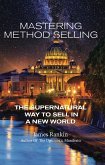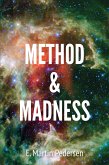In his book 'On the Method of Zadig', Thomas Henry Huxley explores the use of empirical evidence and scientific reasoning in problem-solving, inspired by Voltaire's character Zadig. Huxley's work reflects the intellectual climate of the 19th century, emphasizing the importance of critical thinking and observation in scientific inquiry. The book is written in a clear and logical style, making it accessible to a wide audience interested in the intersections of philosophy and science. Huxley's use of Zadig as a literary device adds a creative element to his discussion of scientific methodology, offering readers a fresh perspective on the subject. Thomas Henry Huxley, known as
Dieser Download kann aus rechtlichen Gründen nur mit Rechnungsadresse in A, B, BG, CY, CZ, D, DK, EW, E, FIN, F, GR, H, IRL, I, LT, L, LR, M, NL, PL, P, R, S, SLO, SK ausgeliefert werden.









